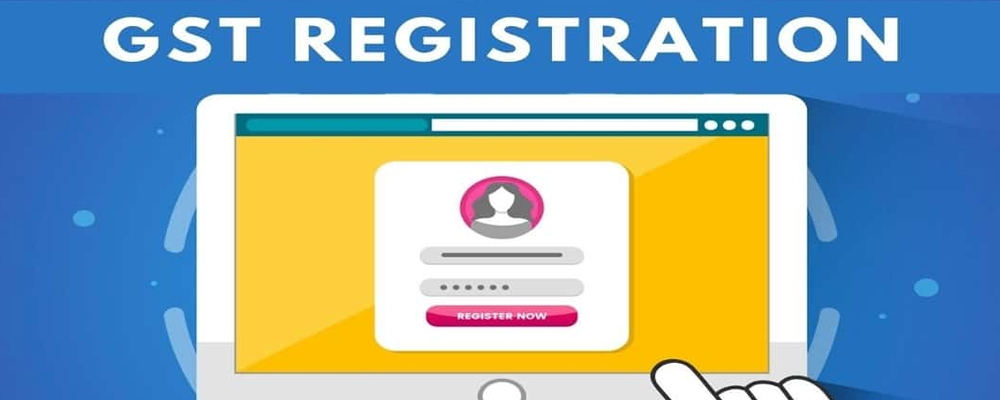As per the ruling of the Government of India, businesses with a turnover of Rs 40 Lakhs p.a should be registered as the normal taxable entities and shall file their Goods and Services Tax (GST) accordingly.
However, sometimes the limit of Rs 40 lakhs could vary from state to state. The threshold limit could be the amount of Rs 20 lakhs p.a for businesses to some other regions or the states.
GST
The taxation system of GST was introduced in the year 2017, changing the entire system of filing the taxation in the country and unified the various taxes, which had to be paid separately in the previous years such as the VAT, service tax, etc.
GST Registration Portal
The registration for the GST process is mandated by the government and all the businesses, aggregators and suppliers meeting certain criteria are required to register themselves as the taxable entities.
The entire procedure has been digitized and the individuals and the businesses could register themselves without much hassle. In case the business activities liable to register themselves carry out businesses without doing so, it is considered to be a criminal offense and punishable as such.
Need A Legal Advice
The internet is not a lawyer and neither are you. Talk to a real lawyer about your legal issue

Who is eligible for the GST registration process?
- Individuals or the businesses registered under the pre-GST taxation system and paid the taxes such as VAT, services tax, Excise Tax, etc.
- Businesses with a turnover of Rs 20 lakhs/ 40 lakhs/ 10 lakhs, as is required by the law of their states.
- Individuals paying taxes under the inverse charge mechanism
- Non-resident individuals who come under the slab of GST taxation
- Every e-commerce aggregator
- Individual supplying goods via an e-commerce aggregator
- Individuals charged with the task of database and retrieval of the online information services from outside India to the Indian citizens not registered under the Indian taxpaying regime.
Types of GST Registration-
As per the GST Act of 2017, various categories were created for the GST registration so as to make it hassle-free and effortless. The various types of GST registration are as follows-
Normal taxpayer-
Most of the businesses in India would fall under this category, they file their GST, however, they do not need to put in any deposit to ensure their place as a normal taxpayer. There is no expiry date for the normal taxpayer after he has registered under this category.
Casual taxable person-
Individuals who put up their stalls or shops for a particular season and not year around shall fall under this category. For this category, a mandatory deposit is necessary to be made which shall be equivalent to the expected GST, they will pay if their stalls are operational. The duration for registration of GST for a business under this category shall be 3 months, which could be renewed or extended by following the procedure available on the online platform.
Composition Taxpayer-
This category of registration is for the following individuals who-
- Want to obtain the GST Composition Scheme.
- Deposit a flat under this category
- Do not want to obtain the input tax credits.
Non-Resident taxable individuals-
An individual who is not a resident of India, but conducts the business dealings in the country, shall have himself registered for GST filing under this category. For example, an individual living outside the country temporarily or permanently, supplying the goods to the people or businesses in India. For this category also, the active time of registration for GST is a period of 3 months, which could be extended from time to time.
Penalty for not registering or late registering for the GST-
- For businesses liable to pay GST and have not completed the online registration, 10% of the amount to be paid or a penalty of Rs 10000 would be imposed on them.
- In case there is a tax evasion or fraud on the part of the business, then 100% of the amount due shall be imposed as the penalty.
Important factors for the registration of GST-
For the GST registration procedure online, the following conditions are necessary to be followed-
- No charge is imposed on the individual or business for completing the procedure of registration.
- In case the business involves the supply of goods and products in the various states, then the registration for GST should be completed in each such state.
Conclusion
It could be inferred from the above discussion that the registration for GST is provided on the online portal by the government so as to provide the individual a hassle free and simple method to pay their taxes, which also helps with increasing the revenue of the government, hence making it a duty of every business in the country to pay their taxes on a timely basis.
Though the process seems simple enough, in case you are confused and are not sure if you could properly register yourself, it is advised to seek the advice of experienced corporate or taxation lawyers in your area, so that the entire procedure could be completed without any mistake. Lead India offers you a wide team of experienced advocates who have experience in the field of taxation and could provide you professional assistance and expertise.




